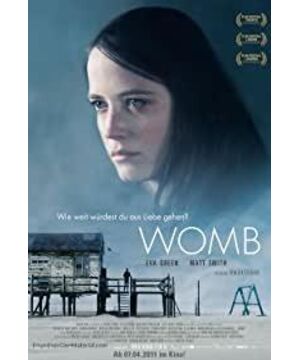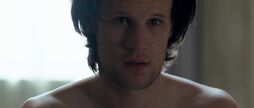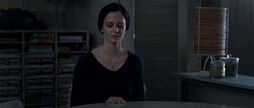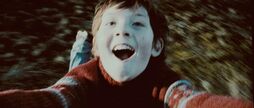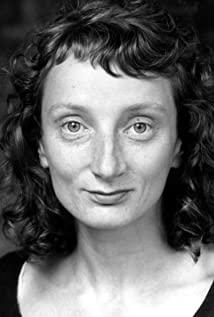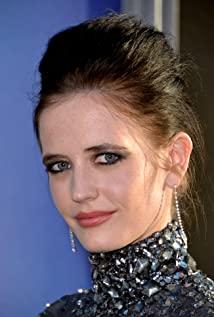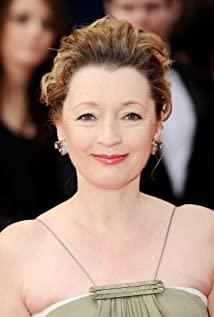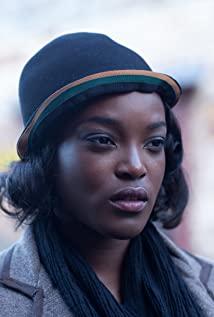The empty mirror of the ebb and flow of the sea and the empty and cold artistic conception in the picture are like blanks in traditional Chinese paintings, waiting for you to fill up a lot of imagination, and then contact the film's tangled and reciprocating plot, it is easy to think of "reincarnation". "This Buddhist term, and then wrapped myself in it. As described in Jin Yong's novels, the male protagonist sees his sweetheart: "...Seeing a few teardrops hanging on her cheeks, I can't help but look crazy..."
After reading crazy, I can't help asking myself: What is the female protagonist giving birth to? Your own son or your lover? Lovers can be reborn, can love be reborn? Cloning can make us live forever, will we still believe in religious gods and Buddhas? A daughter can give birth to a father, and a girlfriend can give birth to a lover. Can the existing family relationship still exist? When I meet an identical stranger on the road, will it be a passerby or a friend? Is the cloned self still the real self? ...think about it!
Back to the video. Although the type label of "Womb" is embellished with the word "science fiction", there are no monsters, super body steel warriors, no cosmic and space futuristic cities, no flying bus systems, and even no sliding around. Touch screen... Aside from the preset story background of "human cloning technology has matured", "Womb" does not see a shadow of a sci-fi movie on the screen. In fact, it is a sci-fi veil where life and love are entangled. s story.
Cinematography is excellent. Empty and minimalistic exterior high-key images with plenty of shallow depth-of-field interiors and close-ups make the film look very clean. Images of metaphorical genes and chromosomes such as chains, pine cones, fishing nets, dense roaches, and colorful sweaters are also impressive. The use of symbolic props and scenes such as snails, cabins, and bathtubs also shows the ingenuity of the director and the artist, which is pleasing to the eye.
In the first 10 minutes, the director used a beach, a wooden house, a snail, an abandoned boat and two bicycles to tell an unforgettable story of two little guesses and the beginning of love. Then the camera turned, and after 12 years of separation, the male and female protagonists met with a smile and continued the front line. Immediately after a car accident, the hero and heroine were separated, and the heroine resolutely decided to use genetic technology to continue the hero's life and their love that died prematurely. After the operation, the lover relationship between the two naturally transformed into a mother-son relationship. As the child grows, this mother-child relationship becomes more and more unclear. The boy's boyfriend's attributes slowly recovered, and the mother's lover's feeling gradually became clear. This incredible relationship slowly accumulated, and finally broke out in a sex scene with mixed tastes and ignoring human relations. There is a strange hope in the sad ending. The child leaves the mother, the man leaves the woman, and a new life is conceived in the woman's "Womb".
After putting aside the tangled and shocking human relations chaos brought about by cloning in the story, I admire the director's use of such an avant-garde perspective and such a subversive ethics to describe this beautiful love, and I admire the heroine Rebecca for not turning back. This "crazy" feeling of going forward bravely. This infatuation is like a sharp blade, cutting through the soft parts of my heart at once.
Life is nothing but life and death.
After the male protagonist died, Rebecca actually wanted to sacrifice her love, and she was almost drowned in the tide. There may also be a pun on the dead. When Rebecca decided to use her womb to continue her lover's life, she had already been counted dead once, and the two were reborn together after the cloning operation. The womb is the container of life, and life is the container of soul and love. "It's over! I'll always talk to you, even if you don't respond! You're gone, and you've been here too! Maybe all I need is this gift, the gift you left me in the end." The narration of the heroine at the beginning of the film, and the beginning of the film is the end of the continuation. This passage of the heroine filtered out the slight discomfort caused by the chaos of the film, so that I could only see the holy love of the heroine for the hero in the heart of the heroine. This is a love that transcends ethics, transcends the age, is extremely firm and fearless and selfless.
Who was I who was not born to me, who was when I was born.
It is said to be a remark made by Emperor Shunzhi when he became a monk. Personally, it is like a complaint made by the author when he explained his fate with the theory of Buddhist reincarnation and did not get an answer. Assuming that there really is reincarnation, then the theory of seniority is not self-defeating. The soul wanders among the six realms, immortal, and human is just a form in reincarnation. The father's previous life may be a son, and the girlfriend's previous life may be a daughter and a mother... In this way, family love is actually not as real as love, and it is not so strange for the heroine to give birth to a boyfriend, but it is a ghost. A kind of luck in the will of heaven.
At the end of the film, the son (boyfriend) turns around and leaves. The cold wind is cold, the beach is barren, and the lonely log cabin stands lonely in the picture. Suddenly, a dim yellow light flashes, which warms the whole desolation and leaves a good hope. At this time, I suddenly wanted to tamper with the classic blessing: May all lovers in the world become mothers and sons!
View more about Womb reviews


